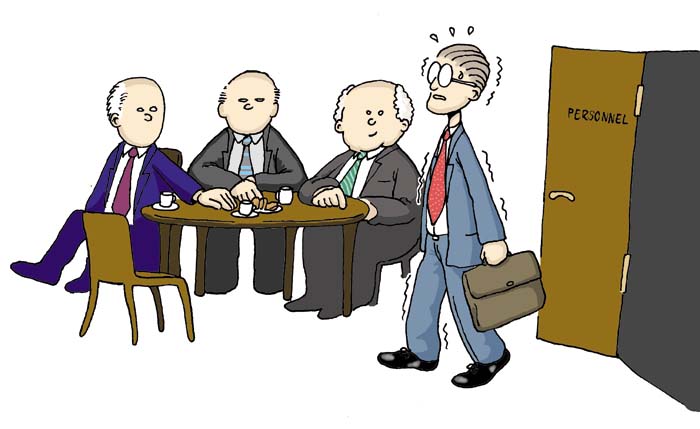by Celes
Work stress exists no matter which line of work, industry or company you are at. Here are 55 tips which can help you manage it better :) . I personally applied almost all of the tips below when I was working at my previous job, which was highly demanding and challenging – including tip #55, though it definitely wasn’t due to stress! ;)
1. Be clear on your career objective. What are you planning to achieve out of all of this? Is it in line with your purpose in life? This is what keeps you going every day.
2. Go to work early every day. Have a head start.
3. Put first things first. Be clear on your Quadrant 2 tasks.
4. Have a to-do list on hand with the tasks you need to finish.
5. Refer to the list throughout the day to ensure you are on the right track.
6. Jot down all other tasks that comes to you in a notebook. Deal with them when you are free.
7. Do not skip lunch. It is not good for you. Besides, you can’t deal with your work effectively if you don’t have energy.
8. Do not eat lunch at your desk. Get out for some fresh air.
9. Lunch out with co-workers. An excellent time to destress.
10. Cultivate meaningful relationships with your co-workers.
11. Be helpful to your co-workers. You will feel good for giving.
12. Get a mentor in your company or elsewhere. He/she is more experienced and can dispense valuable advice.
13. Be a mentor to someone at work. Helping someone with their problems gives you new insight to yours.
14. Be clear on your boss’ expectations of you. Discuss/review your work plan regularly.
15. Be on top of your deliverables.
16. Develop a genuine friendship with your boss.
17. Talk to someone about your problems. Do not keep them bottled up inside.
18. Be on time for meetings/discussions/appointments.
19. Come prepared for meetings/discussions/appointments.
20. Anticipate potential issues.
21. Prepare contingency plans for those issues.
22. Think opportunities, not problems.
23. Be big picture focused. Look at long-term vs short-term.
24. Gain additional perspective by looking at your situation from another person’s shoes.
25. Adopt the 80/20 principle. Do not fuss over the less important 20%. Check out the 3-part series on The 80/20 principle which covers what the 80/20 principle is, why it’s so crucial and how we can apply it.
26. Focus on what is actionable in a situation.
27. Delegate work where possible.
28. Learn to say no if a task is not a priority.
29. Move on if there is nothing you can do.
30. Leverage on your co-workers’ expertise and knowledge.
31. Escalate problems to your boss when they are beyond you.
32. Identify sources of your stress and work a solution.
33. Reward yourself when you accomplish something.
34. Establish a social network at your workplace.
35. Maintain your social circle outside of work. Your life does not revolve around work.
36. Breathe deeply and calmly all the time.
37. Develop a good posture. It makes you look better, lets you think better and prevents back pain in the future. Check out the article on Benefits Of Having A Good Posture (And 13 Tips To Getting One).
38. Meditate daily to clear out mental clutter.
39. Listen to your favorite music as you work (using earphones of course).
40. Exercise. Set aside a regular time every week for it.
41. Make your desk conducive for your work. Have an organizing system, put personal photographs, remove unwanted clutter, etc.
42. Take a break from your computer every once in a while. Go to the toilet, go to the pantry, etc.
43. Get a fruit to snack on when you are hungry.
44. Have a water bottle/mug by your side. Many working adults don’t drink enough water every day.
45. Look ahead at your daily/weekly schedule to know what is next.
46. Be the master of your time.
47. Make a commitment to leave work on time.
48. Do what is needed for today and leave the rest for tomorrow. Work will always be there.
49. Get enough sleep every day. Aim for minimum 6 hours. It will go a long way the next day.
50. Rest if you are sick. You are not superman, and even superman has down times.
51. Do not overcommit your resources.
52. When the going gets tough, remember all this is part of the job - you are getting paid to do this.
53. Focus on what you love about your job.
54. Unwind after a day of hard work. Take time out for a vacation.
55. Quit your job. If all previous 54 tips don’t work and your work is simply too much for you, quit it. There is no point in leading a life of misery.
Bonus tips!
1. Do things one at a time. At Michael Jordan puts it “Step by step, I cant see any other way of accomplishing anything”.
2. Detach yourself from the situation. People become stressed and anxious because they attach themselves to the issue and the outcome. Recognize that these are separate from you and view them objectively.
3. Do your best and the rest will follow.
4. Shift your locus of control inward. Do you normally blame the external environment for what happens, or do you take responsibility? When you assume control of whatever happens, even if it may seem it is not within your control, you will become much more equipped to handle what occur.








